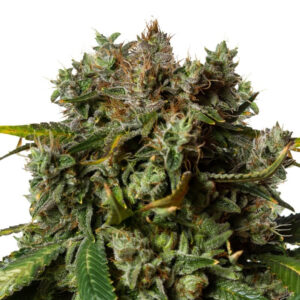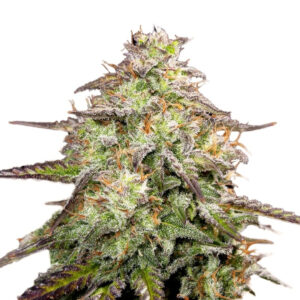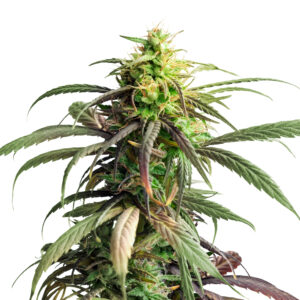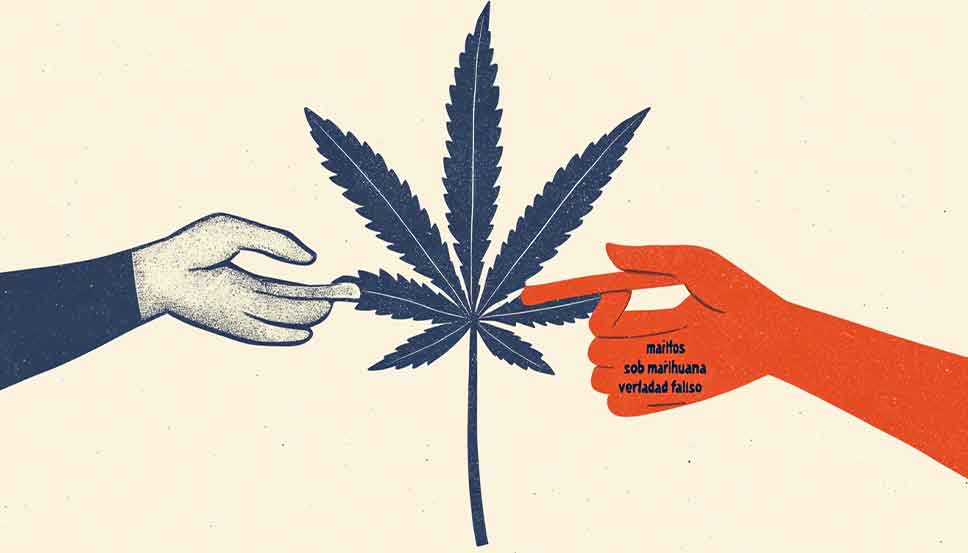Feeling constantly drained, foggy, or wired but tired? If you’ve been searching for answers, you may have come across the term adrenal fatigue. While it’s not officially recognized as a medical diagnosis, many people swear by the symptoms—chronic stress, low energy, sleep disturbances, and hormonal imbalance.
In the quest for relief, some have turned to cannabis. But what’s the connection between adrenal fatigue and cannabis? Can weed really help support your body stressed, or could it make things worse?
In this article, we’ll break down the controversy around adrenal fatigue, how cannabis interacts with your body’s stress systems, and whether it might be a helpful (or risky) tool for managing chronic burnout symptoms.
Adrenal fatigue is a term used to describe a set of symptoms believed to result from chronic stress taxing the adrenal glands. These glands produce cortisol—the hormone responsible for managing your stress response, sleep-wake cycle, and energy levels.
According to the adrenal fatigue theory, too much stress over time “burns out” the adrenals, leading to symptoms like:
However, it’s important to note that most mainstream medical institutions do not recognize adrenal fatigue as a real condition. Organizations like the Cleveland Clinic argue that the adrenal glands rarely “burn out” in the way the theory suggests. That said, the symptoms are real—and they’re often linked to stress, poor sleep, and lifestyle imbalances.
Whether you believe in the label, there’s no denying that many people are seeking relief from chronic exhaustion and stress overload. This is where cannabis enters the conversation.
Adrenal fatigue is a term used to describe a set of symptoms believed to result from chronic stress taxing the adrenal glands. These glands produce cortisol—the hormone responsible for managing your stress response, sleep-wake cycle, and energy levels.
According to the adrenal fatigue theory, too much stress over time “burns out” the adrenals, leading to symptoms like:
Persistent fatigue, even after rest
Brain fog and lack of focus
Low blood pressure or dizziness
Cravings for salt or sugar
Trouble falling or staying asleep
However, it’s important to note that most mainstream medical institutions do not recognize adrenal fatigue as a real condition. Organizations like the Cleveland Clinic argue that the adrenal glands rarely “burn out” in the way the theory suggests. That said, the symptoms are real—and they’re often linked to stress, poor sleep, and lifestyle imbalances.
Whether or not you believe in the label, there’s no denying that many people are seeking relief from chronic exhaustion and stress overload. That’s why the topic of adrenal fatigue and cannabis use has gained attention—could cannabis offer symptom relief for those struggling with burnout?
While cannabis isn’t a cure for adrenal fatigue, many people turn to it to manage some of the condition’s most frustrating symptoms. If you’re exploring the relationship between adrenal fatigue and cannabis, here are a few areas where cannabis may offer support:
One of the most common complaints associated with adrenal fatigue is poor sleep. Certain cannabis strains—especially those with relaxing terpenes like myrcene or linalool—may help promote deeper rest and reduce nighttime awakenings.
CBD, and to some extent low doses of THC, have been shown to reduce anxiety in some users. This could help take pressure off the adrenal system by calming the fight-or-flight response.
Chronic stress can suppress appetite, but cannabis (especially THC) is well known for stimulating it. This may help users regain strength and stabilize energy through improved nutrition.
Some people with adrenal fatigue report muscle aches and tension. Cannabis—particularly full-spectrum products with both THC and CBD—may provide anti-inflammatory and muscle-relaxing effects. Check out the best cannabis strains for stress relief at AMS.

Although cannabis may offer relief for some symptoms associated with adrenal fatigue, it’s not without its risks—especially if used without mindfulness or medical guidance.
While small amounts of THC may help with stress relief or sleep, high doses can sometimes increase anxiety, disrupt sleep patterns, or lead to paranoia—making symptoms worse instead of better.
Frequent cannabis use can lead to tolerance, where the effects diminish over time. In some cases, this can evolve into psychological dependence, where users feel unable to relax or sleep without cannabis.
If cannabis becomes a go-to solution without addressing root causes (like poor diet, chronic stress, or lack of rest), it may delay long-term recovery. Cannabis should be used as a complement—not a substitute—for healthy habits and lifestyle changes.
There’s still much to learn about how cannabis affects hormones like cortisol. Some evidence suggests THC may temporarily elevate cortisol levels, while CBD may reduce them—but responses vary widely between individuals.
As always, it’s best to start low, go slow, and consider speaking with a healthcare provider—especially if you have existing hormonal or adrenal-related conditions.
If you’re exploring the connection between adrenal fatigue and cannabis, using weed with intention is key. Here are a few practical ways to integrate cannabis into your self-care without overdoing it:
Microdosing—taking very small amounts of cannabis—can provide mild relief from stress and anxiety without impairing your energy or focus. This is especially helpful if you’re managing daily tasks and don’t want to feel “out of it.”
Strains with low THC and higher CBD levels tend to be more calming without strong psychoactive effects. Look for strains labeled as 1:1 THC:CBD or CBD-dominant hybrids.
Use cannabis at times that won’t interfere with your productivity or alertness—ideally in the evening or during moments of intentional relaxation.
Everyone’s body responds differently to cannabis. Keep a simple journal to note which strains, doses, and times of day work best for your symptoms without side effects.
Used mindfully, cannabis can be a supportive tool in managing stress and fatigue—just remember that it’s not a magic fix, and it works best when paired with healthy habits like rest, nutrition, and movement.
Adrenal fatigue and cannabis may be a debated term in the medical world, but the symptoms—exhaustion, stress, poor sleep—are real for many people. While cannabis isn’t a cure, it may offer meaningful relief when used mindfully and in the right context.
From improving rest to reducing anxiety and tension, there’s growing interest in the potential connection between adrenal fatigue and cannabis. But as with any wellness tool, success depends on choosing the right strains, using the right dose, and staying in tune with your body’s needs.
If you’re curious about which cannabis strains may help you unwind and reset, explore the differences between sativa and indica strains, or browse the full collection of seeds at Amsterdam Marijuana Seeds to find the one that fits your lifestyle and goals.













Related Posts

There is pretty much a strain for everything now and I think that it is pretty fantastic how cannabis has been developed so much that we can now pick and choose how we want to feel and then select a strain from there. Different people have different uses for cannabis, some like it to make them sleepy, others use it to stimulate their appetite, some even use it to enhance their concentration. However, if all you’re looking for is to feel good and maybe a little bit giggly, then this is the article for you. Here are a few of my favorite strains for inducing euphoria:

Growing marijuana can be challenging, but growing it in rocky soil can be even more daunting. Rocky soil lacks the essential nutrients necessary for plant growth, and the rocks can prevent

There are myths flying left and right giving marijuana an undeserved bad name. Because cannabis is a mysterious danky cloud of smoke for most people, it strikes up the vivid imaginations of many creating fictional rumors. Since many people don’t know much about cannabis they easily fall for the myth. Let’s clear the air and destroy the myths giving our precious marijuana a bad name.